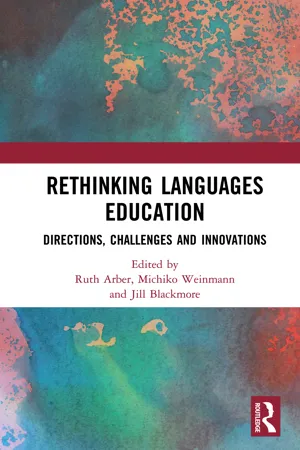Historically, the language was usually one of the first forms of cultural capital that served as a complicated instrument of colonisation, passed from the coloniser to the selected collaborating few in the colonised communities. This has been consistently true of colonial strategies. In Hong Kong, for instance, Law's (2008) review of early colonial history illustrates a distinct socio–cultural formation whose characteristics are captured in Law's notion of “collaborative colonialism.” Law argues that collaborative colonialism is not just a model that describes Hong Kong in its past but a key concept that enables researchers to understand Hong Kong's political unconscious, past or current:
…ever since the early twentieth century, the basic political structure of Hong Kong has never been substantially changed; …. The parties that have been sharing the power of this collaborative-colonial formation are always the government, which occupies a ‘colonial’ position, and a group of collaborative ‘Higher Chinese’, which the government nurtures.
(Law 2008, p. 527)
A century has gone by and the 1997 handover of Hong Kong to China has not diminished the political and economic clout of this class of bilingual elites. In fact, all of the chief-executives after 1997 have come from the bilingual elite business sectors or the former British colonial senior civil service sector.
Language is one of the first tools used to shape the colonised in the coloniser's image. The legacy of desire in ex-colonial societies and beyond includes a veneration of and yearning for that double-edged sword: the language of colonisation. English promises access and status (as cultural capital in the fields of exchange set up in the historical institutions during colonisation), but in many contexts, it has brought an extinguishing of heritage languages and related epistemologies and local knowledge and further a devaluing of the self. Dubois' notion of double-consciousness captures the sense of viewing oneself through the eyes of the dominant group, the poignancy of the struggle to reconcile a desire for authenticity on one hand and for emulation of the coloniser on the other (Dubois 1903).
The symbolic violence that was part of colonisation continues in (and out of) English language classrooms in postcolonial contexts (Bunyi 2005), non-colonial settings (Riazi 2005; Reagan & Schreffler 2005), and empires themselves (Motha 2006a, 2006b, 2014). Although many former colonies have gained independence in political and military terms since the end of World War II, much of the decolonisation work at the deeper level of subjectivity and cultural imaginary remains to be done (Chen 2010; Motha, Jain & Tecle 2012). Mignolo (2012) uses the term coloniality to describe the psychological—as opposed to governmental—effects of colonisation, and it is only through a theorisation of desire that we can account for the widespread nature of coloniality.
The colonial origin of much of this deep psychic and cultural belief and yearning, however, remains at the unconscious level. Desire and consciousness have a complicated relationship with each other. For Sartre, the human condition is characterised by a desire to achieve unity of self, which is not a given, but is rather a task or an ongoing fundamental project. In Being and Nothingness, Sartre (1956) discussed how desire becomes an impediment to consciousness in the case of subjects under mauvaise foi (“bad faith”). Individuals experiencing mauvaise foi feel social pressure to accept inauthentic values, leading to self-deception and the relinquishing of their freedom. For instance, when a postcolonial Hong Kong subject chooses to emulate the former colonial master's way of speaking, using British “received pronunciation” (RP), they are seeking to appropriate the identity of “British English speaker.” In Sartre's terms, the postcolonial has chosen to act in the mode of “being-in-itself” rather than “being-for-itself.” In this way, the burden of the post-colonial's freedom, the requirement to decide for themselves what kind of speaker identity to take up is lifted from their shoulders as their behaviour is essentially set in stone because of the definition of speaker identity they adopted. We thus frequently hear myths that substitute as “natural” reasons for such desires—such as, “the native speaker accent is more beautiful” or “non-native accents create unintelligibility”—without conscious reflection on the social constructedness of beauty and intelligibility, nor the fact that listeners tend to hear what they expect to hear, which is influenced by factors including the speaker's race (Lindemann 2003; Rubin 1992).
In what follows, we shall unpack the processes that instil such desires that linger on in the subjectivity of the “post-colonials.” We argue, after Chen (2010), that much of this desire for English is linked to the broader desire for what has been constructed as Western cosmopolitanism (Appiah 2007)—an aftermath of historical forces of imperialism, colonialism and Cold War politics.
